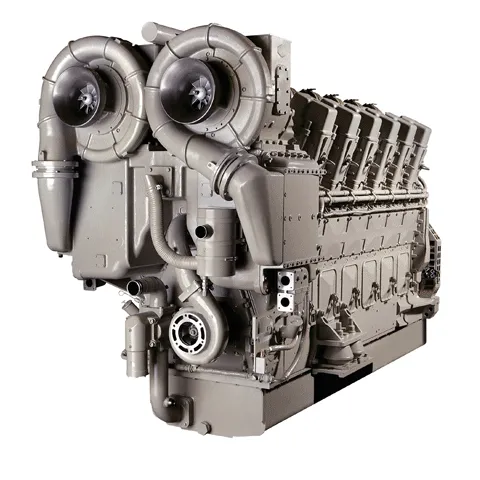A Full Guide to Picking the Right Engine for Your Project
Picking the appropriate engine for your project is a crucial decision that can substantially affect its total success. Each of these elements plays a critical duty in guaranteeing that your selected engine not just satisfies immediate objectives but additionally aligns with long-lasting desires.
Define Your Job Requirements
Defining your project needs is an essential step in picking the proper engine for successful application. An extensive understanding of your project's purposes will lead you in determining the functions and capacities required from an engine. Begin by laying out the range of your task, including the wanted performance, target audience, and the particular end results you aim to accomplish.
Following, think about the technical requirements that line up with your project objectives. This consists of evaluating the compatibility of the engine with existing systems, along with the programming languages and structures that will certainly be used. Additionally, examine the level of scalability called for to fit future development or changes popular.
Spending plan constraints additionally play an important duty in defining your project needs. Develop a clear economic framework to direct your decision-making procedure, guaranteeing that the engine picked fits within your budget while offering the needed functionality.
Evaluate Performance Requirements

Following, consider the scalability of the engine. Examine whether it can take care of increased work as your project expands. Engines that sustain horizontal scaling are typically better for bigger applications. Furthermore, review the engine's efficiency under various problems, such as peak usage situations, to guarantee it satisfies your dependability standards.
Think About Convenience of Usage
While technological specs are necessary, the convenience of use of an engine can considerably impact the development process and overall task success. An instinctive user interface, clear paperwork, and streamlined workflows can drastically reduce the learning contour for designers, enabling them to focus on imagination and analytical instead of coming to grips with complicated tools.
When assessing an engine's simplicity of usage, consider the onboarding experience. A well-structured intro, complete with tutorials and example jobs, can assist in a smoother transition for new users. Furthermore, the clarity and comprehensiveness of the engine's documents play a critical duty; extensive overviews and API recommendations can empower programmers to troubleshoot and apply features efficiently.
An additional aspect to take into consideration is the engine's customization capabilities. An engine that enables very easy modifications can be extra easy to use, as developers can tailor it to fit their details requirements without extensive headache. Analyze the workflow assimilation with tools and platforms you already use. A natural community can boost productivity and decrease rubbing throughout the development process. Eventually, picking an engine that prioritizes ease of use can cause a more effective and delightful advancement experience.
Assess Area and Support
The strength of an engine's community and assistance network can greatly influence a developer's experience and success. A vibrant area often shows a wide range of common understanding, sources, and repairing aid that can improve your job's advancement procedure. When examining an engine, consider the dimension and task level of its area. Larger areas generally provide extra discussion forums, tutorials, and third-party plugins, making it possible for developers to find remedies much more effectively.
Furthermore, evaluate the schedule of official assistance channels. Reliable documents, receptive customer support, and normal updates are necessary for attending to technological problems and maintaining your job on the right track. Engines For Africa. Energetic communities likewise foster cooperation, offering possibilities for networking and feedback, which can be directory very useful, especially for tiny teams or independent developers
In addition, examine the presence of community-run events, such as hackathons or meetups. These gatherings can improve your understanding of the engine while linking you with experienced individuals and potential partners. In summary, a robust community and support system not just enhance advancement yet also develop a setting for learning and development, inevitably boosting the likelihood of your project's success.
Contrast Price and Licensing Options
Spending plan considerations play an essential function in picking the right engine for your project, as the price and licensing alternatives can considerably impact both temporary costs and long-lasting stability. Engines For Africa. Various engines offer varying rates structures, which can include one-time acquisition fees, subscription models, or revenue-sharing agreements based upon your task's incomes

Licensing options also vary significantly. Some engines are open-source, using adaptability and community-driven assistance, while others might need proprietary licenses that restrict use and circulation. Comprehending the ramifications of each licensing model is essential, as it impacts ownership legal rights, look here future scalability, and possible legal obligations.
Verdict
To conclude, picking the appropriate engine for a task requires a detailed examination of specified job needs, efficiency demands, simplicity of use, area support, and expense considerations. By methodically attending to these vital factors, decision-makers can make sure placement with both present and future task needs. A knowledgeable selection eventually boosts the probability of task success, enabling reliable source allotment and taking full advantage of potential outcomes within the defined monetary restraints.
Choosing the suitable engine for your project is a critical decision that can dramatically affect its overall success.Defining your task needs is an essential action in selecting the proper engine for effective implementation. A thorough understanding of your project's goals will certainly direct you in see this determining the features and abilities needed from an engine.As soon as you have a clear understanding of your project needs, the next step is to review the efficiency requirements of the engine.In final thought, selecting the proper engine for a project necessitates a comprehensive assessment of specified task needs, performance needs, simplicity of usage, neighborhood assistance, and expense factors to consider.